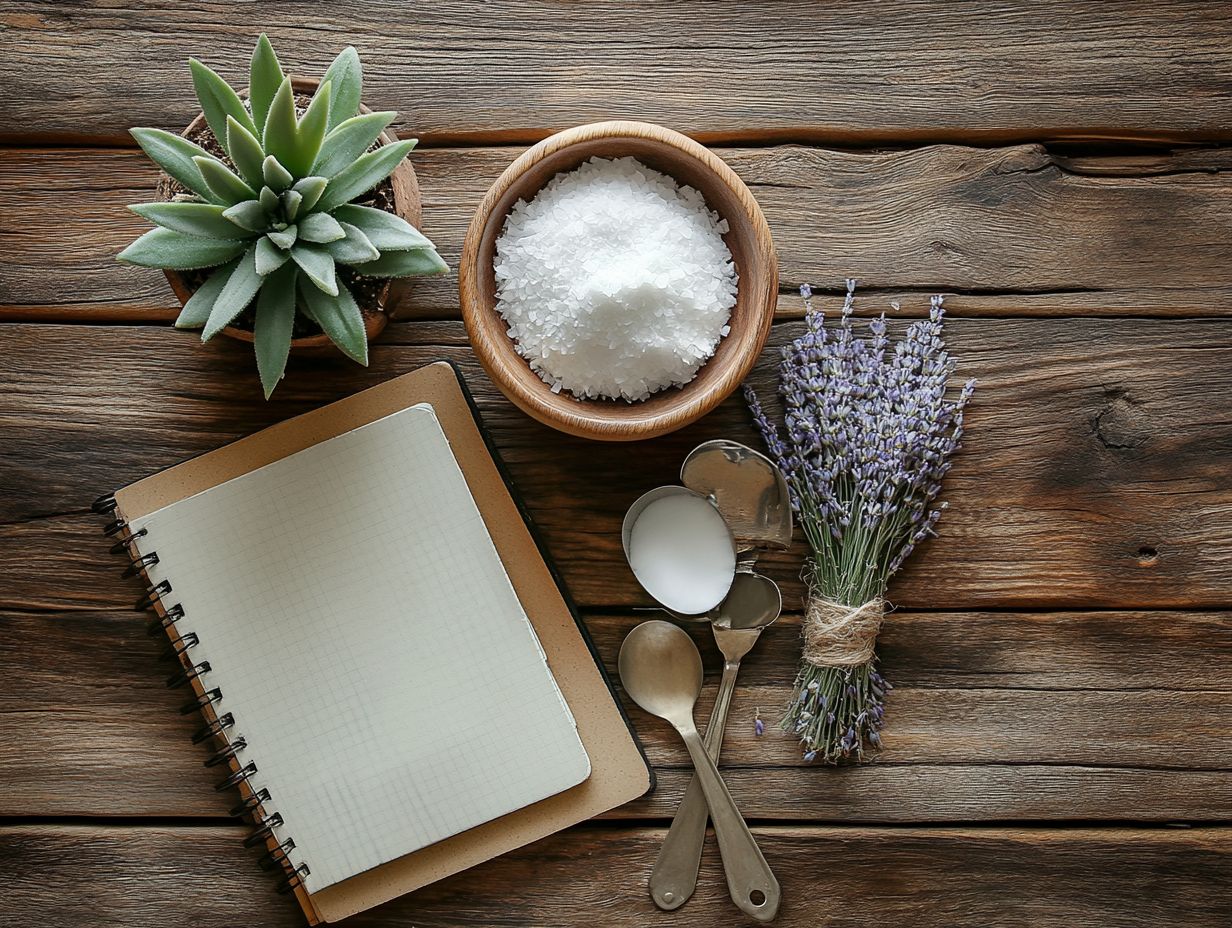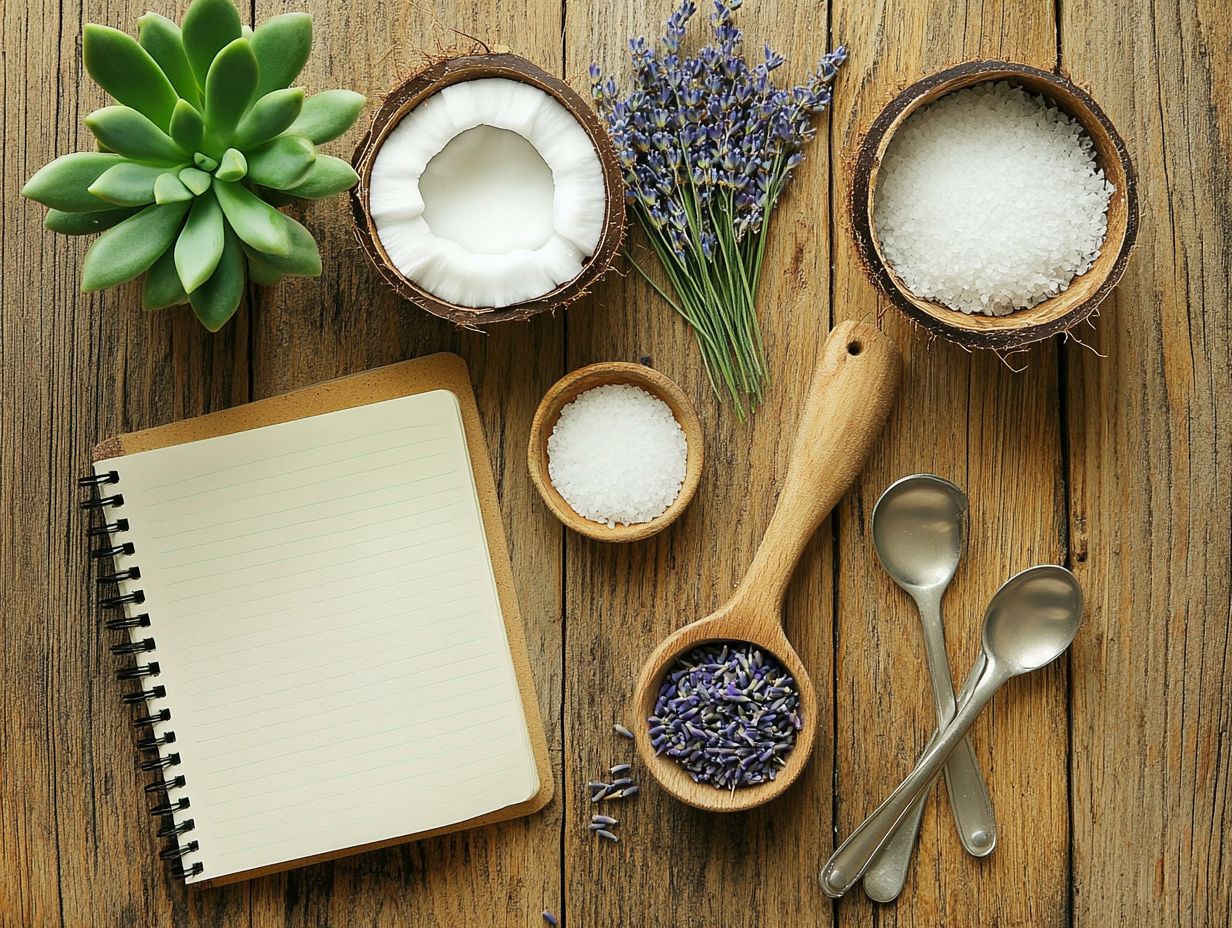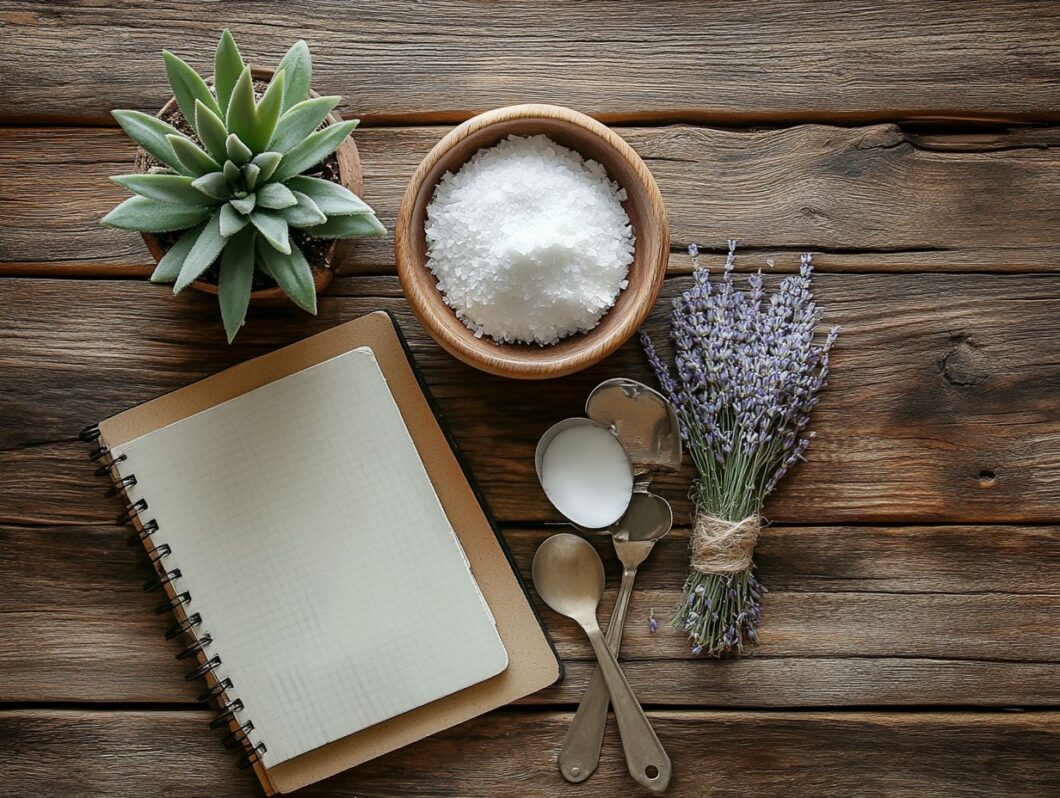In a world increasingly focused on natural beauty and holistic health, I have observed that DIY organic skincare has gained significant popularity. This approach allows individuals like myself to create our own skincare products using simple, organic ingredients, offering both personal customization and chemical-free benefits.
While the idea of crafting my own skincare products is certainly appealing, it is essential to evaluate the advantages alongside the potential drawbacks. This article delves into the various aspects of DIY organic skincare—from its benefits and risks to essential ingredients and practical tips—assisting me in determining whether this hands-on approach is the right choice for my skincare routine.
Key Takeaways:
What is DIY Organic Skincare?

DIY Organic Skincare involves the process of formulating personal skincare products at home using natural ingredients and organic components, which promotes both skin health and environmental sustainability.
I have observed that this approach has gained considerable popularity, as it enables individuals to tailor their skincare routines to address their unique skin types while avoiding allergens that could trigger allergic reactions or skin irritation.
By incorporating essential oils, plant extracts, and chemical-free products, I can engage in a holistic wellness journey while ensuring that my skincare practices adhere to organic standards and good manufacturing practices.
Defining the Concept
Defining the concept of DIY organic skincare requires an understanding of its foundation in utilizing natural ingredients that promote skin health while minimizing potential health risks associated with commercial beauty products.
This approach is not only advantageous for daily skin maintenance but is particularly essential for individuals dealing with common skin conditions, such as eczema or psoriasis, where harsh chemicals can worsen irritation.
When creating my own skincare products, I prioritize carefully examining ingredient labels to identify and avoid allergens and irritants, ensuring that I select components compatible with my unique skin sensitivities.
Conducting thorough research on ingredients provides valuable insights into their benefits, allowing me to understand how specific natural elements can effectively address concerns like inflammation or dryness.
This commitment to understanding the nature of each component enables me to develop a more tailored skincare routine, give the power toing me to adopt a holistic approach to self-care.
The Benefits of DIY Organic Skincare
The benefits of DIY organic skincare are extensive, allowing me to create personalized beauty products tailored specifically to my unique skin type, preferences, and individual needs.
This approach not only enhances my overall skin health but also contributes to my overall wellness.
Why Many People Choose DIY

Many individuals, including myself, opt for DIY organic skincare as a viable alternative to conventional products. This choice is often driven by a desire to avoid allergen-containing ingredients and the perceived health risks associated with chemical-laden beauty items.
This shift in preference reflects a broader trend of skepticism towards the marketing tactics prevalent in the beauty industry. Instead of relying on mass-produced items filled with synthetic components, consumers like me are increasingly seeking out natural alternatives that promise to be gentler on the skin.
The appeal of chemical-free products aligns closely with the rise of wellness culture, where self-care routines emphasize holistic health and well-being. Wellness spas have recognized this trend and are incorporating DIY beauty workshops and offering organic treatments that resonate with clients who are looking for more personalized and eco-friendly options.
The Drawbacks of DIY Organic Skincare
While I appreciate the numerous benefits of DIY organic skincare, I acknowledge that it also has its drawbacks.
These include the potential risks of skin irritation and the challenge of ensuring product safety, particularly when compared to commercially available skincare options that typically undergo extensive dermatological testing.
Potential Risks and Limitations
The potential risks and limitations of DIY organic skincare must be carefully considered. One significant concern is the possibility of skin irritation resulting from improper formulation. Additionally, maintaining an accurate list of allergens is crucial to prevent adverse reactions.
Many homemade concoctions may include ingredients that are not only ineffective but could also exacerbate pre-existing skin conditions. Therefore, it is vital for those who are enthusiastic about creating homemade products to adhere strictly to organic standards, ensuring that all components are safe and suitable for skin application.
To effectively navigate these complexities, I advise patch-testing new formulations before applying them fully. Keeping detailed notes of each ingredient used and relying on trusted sources for guidance on skin-friendly recipes are also essential practices.
This diligence can help mitigate risks and allow individuals to enjoy the benefits of DIY skincare without compromising their skin’s health.
How to Decide if DIY Organic Skincare is Right for You

Determining whether DIY organic skincare is suitable for me requires a careful evaluation of my personal care preferences, a thorough understanding of my specific skin type, and an honest assessment of the time and effort I am willing to invest in product formulation and ingredient customization.
Factors to Consider
When I consider a DIY organic skincare regimen, several factors come into play. It’s essential to conduct thorough ingredient research to ensure that I am using chemical-free products and selecting essential oils that provide beneficial moisturizing properties.
Understanding my personal skin conditions is crucial, as my skin may react differently to various ingredients, potentially leading to irritation or allergies. This highlights the significance of using quality organic ingredients; they typically contain fewer synthetic additives and harsh chemicals, which makes them safer for sensitive skin types.
Specific essential oils, such as lavender for its calming effects and tea tree for its antibacterial properties, can enhance the efficacy of my homemade formulations. When creating effective blends, I always perform a patch test to check for any adverse reactions and start with lower concentrations to gauge their impact, gradually adjusting as needed for optimal results.
Essential Ingredients for DIY Organic Skincare
I recognize that essential ingredients for DIY organic skincare include natural substances like honey, aloe vera, chamomile, and green tea.
Each of these ingredients offers unique moisturizing properties and therapeutic effects, making them valuable additions to homemade beauty products.
Common Ingredients and Their Benefits

I often incorporate common ingredients found in DIY organic skincare, such as honey, aloe vera, chamomile, and green tea, which are highly regarded for their anti-inflammatory properties and their ability to nourish and soothe the skin.
These natural elements not only help to alleviate irritation but also provide targeted benefits for various skin types. For example, honey is known for its outstanding antibacterial properties, making it particularly effective for acne-prone skin, while aloe vera delivers intense hydration, which is ideal for dry or sensitive complexions.
Chamomile, celebrated for its soothing effects, can reduce redness and relieve irritated skin. Additionally, green tea, rich in antioxidants, helps combat free radicals and is especially beneficial for aging skin.
The increasing popularity of these ingredients reflects a significant shift toward using organic alternatives in beauty routines, enabling individuals to harness the power of nature to promote healthier, more radiant skin.
Tips for Creating Effective DIY Organic Skincare Products
I focus on creating effective DIY organic skincare products by adhering to best practices and guidelines that enhance ingredient customization.
This approach ensures both the efficacy and safety of my products by following good manufacturing practices.
Guidelines and Best Practices
Implementing guidelines and best practices is essential for anyone venturing into DIY skincare, as it ensures safe and effective product formulation, ultimately supported by positive customer reviews and successful outcomes.
To embark on this rewarding journey, I begin with thorough research to understand various skin types, the benefits of different ingredients, and the necessary safety protocols.
Planning is equally critical; it involves outlining formulations tailored to specific concerns, selecting high-quality ingredients, and establishing a workspace that adheres to stringent hygiene standards.
Once I have crafted the formulations, the execution phase requires precise measurements and careful mixing to achieve the desired textures and effects.
After creating the products, evaluating their performance through customer feedback is vital. This process helps me refine the formulations and enhances the overall effectiveness of the skincare line, fostering continuous improvement and ensuring customer satisfaction.


